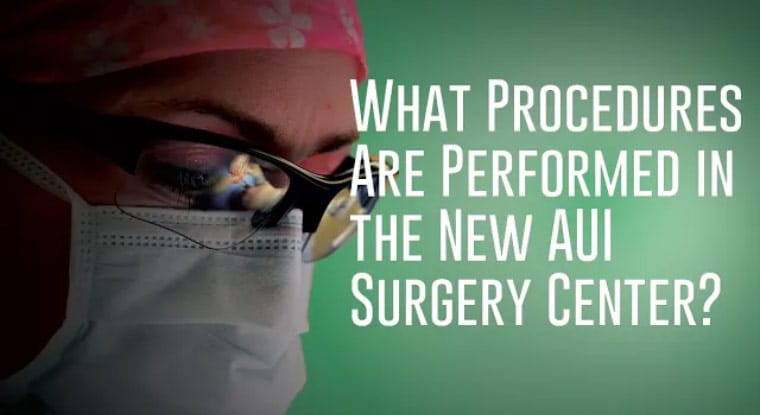Advanced Urology Institute offers a wide-range of services to prevent, diagnose, treat and care for patients with different urological conditions. Our team of urologists are surgical and medical specialists who treat patients dealing with urinary incontinence, kidney stones, urinary tract infections, sexual dysfunction, premature ejaculation, urethral stones, pelvic floor problems, kidney, prostate and bladder cancer, kidney transplants, vasectomies and traumatic urinary tract injuries. We are involved in the assessment of the structure, function and problems of the prostate, kidney, bladder, testes, penis, urethra and their associated glands.
A typical day at AUI
The consultations each day range from patients with voiding and sexual difficulties to victims of knife and gun violence with injuries to their genitourinary organs. We document and review the medical histories of these patients, order appropriate diagnostic tests, such as the PSA for screening prostate cancer, interpret results of the tests, make accurate diagnosis and develop individualized treatment plans. We typically use a wide range of equipment and instruments, including radiographic (X-ray) machines, MRI scans, CT scans, ultrasounds, fluoroscopes, catheters, cystoscopes, radium emanation tubes, and diathermy machines.
We administer treatment depending on the type of condition, severity of symptoms, area affected and patient preferences. Routinely, we perform brachytherapy, high-intensity focused ultrasound (HIFU), photodynamic therapy, laser-based procedures, extracorporeal shock-wave lithotripsy, robot-assisted surgery and abdominal, pelvic and retroperitoneal surgery. We also may prescribe medication for certain conditions or recommend lifestyle and behavioral changes to improve treatment outcomes.
Treating kidney and urethral stones
For patients who come to our emergency department with excruciating flank pain or stone-related pain, we usually run various tests to diagnose the stone. A CT scan typically is used to confirm the presence, location and size of the stone. For small stones, patients are often discharged with pain medication and guided on fluid intake and what to do to ensure the stone is seamlessly passed. The patients also are given instructions on what to do with the stone once passed. For instance, we direct patients to bring the stones to AUI for analysis of chemical composition and determination of metabolic risk factors. With that information, we are able to recommend appropriate dietary measures for preventing stone recurrence, such as avoiding excess salt and animal protein and increasing fluid intake. For larger stones, we may opt to use more invasive treatments to break down or remove them from the urinary tract. The treatment approach depends on the type, size and location of the stone.
Prostate procedures
In men, the diagnosis and treatment of prostate-related conditions, such as BPH and prostate cancer, require various procedures. At AUI, we frequently administer the PSA (prostate-specific antigen) test to assess if there is a prostate problem in men with urinary symptoms such as pelvic pain, voiding problems and blood in urine. Through PSA screening, we are able to reduce the likelihood of advanced disease and the chances of prostate cancer death. But to maximize the benefits of the test and prevent undue harm, we are always careful to use the test in the right patients and at the right time.
We often use rectal and prostate ultrasound to examine the shape and size of the prostate gland. When a tumor is suspected, we may pass a flexible cystoscope or use CT or MRI scan to assess the nature and extent of the malignancy. To check for abnormal prostate cells or confirm prostate cancer, a prostate biopsy is commonly the go-to procedure. During the procedure, the patient is placed under a local anesthetic. The doctor extracts systematic biopsy cores from the area with the suspicious lesion or growth and sends them to the laboratory for diagnosis. Once BPH or cancer has been confirmed, appropriate treatment such as brachytherapy, TURP (transurethral resection of prostate) or prostatectomy (via laparoscopy or robot-assisted surgery) is set up.
Fertility procedures
At AUI, we see patients with a broad range of fertility issues, including those who want to prevent pregnancy permanently and those who have difficulty becoming pregnant. For men who can’t ejaculate healthy sperm, we offer sperm retrieval procedures like surgical sperm extraction and sperm aspiration to harvest their healthy sperm from the testes. These procedures are usually carefully timed to coincide with in-vitro fertilization (IVF) cycles or with the harvesting of the female partner’s eggs. And for men who can’t ejaculate because of spinal cord injuries and other problems, we offer procedures such as electro-ejaculation or the penile vibratory stimulation. The procedures use electro-stimulation and vibration to prompt ejaculation and enable collection of healthy sperm.
For patients who want to avoid pregnancy, we offer vasectomy and vasectomy reversal procedures. Conducted in the urologist’s office with only a local anesthetic, vasectomy is a quick, safe and effective way in which men can stop getting their partners pregnant. It is generally a permanent sterilization method and offers higher efficacy than tubal ligation performed in women. But for men who change their minds after they have undergone a vasectomy, we offer the reversal procedure as a way to try and restore fertility or to help a smaller fraction of men for whom vasectomy triggers ongoing pain.
Urologic oncology procedures
We have skilled and experienced oncologists at AUI who use a combination of equipment and procedures to diagnose and treat different urologic cancers. At AUI, our medical team offers a comprehensive assessment of all available cancer treatments and their expected outcomes, paving the way for their quick integration in our practice. For that reason, we are often the first cancer center in Florida to adopt the latest innovative cancer treatment and care approaches as soon as they are devised. When making cancer treatment decisions at AUI, urologists typically consider a number of psychological and clinical factors, including type and stage of the cancer, anticipated life expectancy, level of risk, overall health of the patient and personal preferences of the patient.
So whether we are dealing with kidney, prostate or bladder cancer, or with genital and pelvic cancers such as scrotal, penile and urethral malignancies, we ensure that the timing of treatment is just as precise and important as the treatment chosen. In some patients, we may opt for active surveillance (watchful waiting) to delay treatment and avoid related side-effects and risks. But to treat cancer, the options include local topical therapies, genital-preserving surgeries, genital reconstruction surgeries, radiation therapy, chemotherapy or hormone therapy.
Pediatric urology procedures
At AUI, we also offer treatment for a number of childhood conditions, particularly congenital ones. For example, children with undescended testes — where one or both testes haven’t descended into the scrotum — may benefit from our minimally-invasive robotic or laparoscopic procedures to correct the disorder. Surgery is our primary treatment option for most pediatric conditions and the da Vinci robotic surgery and laparoscopic surgery have become the standards of care at AUI. The minimally-invasive approaches are preferred for children because they are generally less painful, come with a shorter hospital stay, and require a shorter recovery time. We also offer circumcision to children in their first few days after birth as an elective procedure to remove the foreskin of the penis.
At Advanced Urology Institute, we offer multidisciplinary, patient-friendly, excellent urology care for our patients. So whether you are interested in seeing a urologist for conditions such as prostatitis, stress incontinence, pelvic organ prolapse, recurrent urinary tract infection or urologic cancer, or for procedures like penile implant surgery, vasectomy and cystoscopy, you can rest assured of having a urologist you can trust at AUI. And we are not only focused on innovative, exceptional and superior treatments, services and outcomes, but also satisfactory patient experiences and sound, long-term patient-physician relationships. With our state-of-the-art facilities, advanced equipment, experienced medical professionals and a responsive, compassionate institutional culture, we guarantee top-notch, exceptional care to our patients in an environment where they feel comfortable and treasured.
For more information urological problems and how to prevent, diagnose and treat them, visit the Advanced Urology Institute website.




